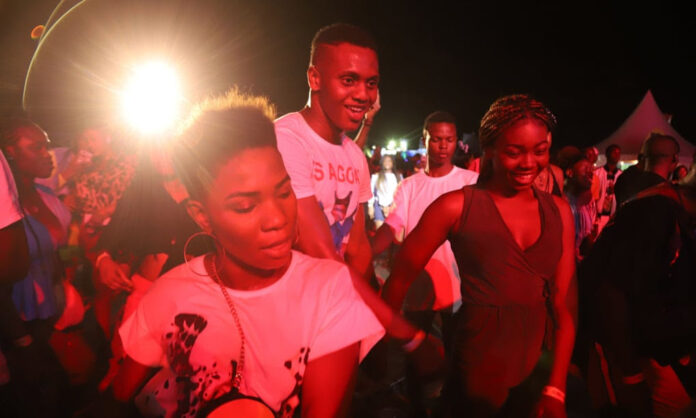Nigerians living abroad splashed over N60 billion in December 2024 during their annual visits to the country for the “Detty December” festivities, underscoring the immense economic contribution of the diaspora. However, as these Nigerians continue to show their significance through remittances and investments, their calls for the right to vote in Nigeria’s elections have hit a roadblock in the National Assembly.
Abike Dabiri-Erewa, Chairman of the Nigerians in Diaspora Commission (NIDCOM), disclosed the staggering figure during a budget defense session with the National Assembly Joint Committee on Diaspora. Dabiri-Erewa highlighted that the N60 billion spent by Nigerians returning home last December was just the beginning. According to her, “This December, of course, you know, it is not less than N60 billion in what they spent coming to Nigeria. It could grow, but it is just scratching the surface.”
This massive expenditure on festive visits is in addition to the over $90 billion in remittances sent by Nigerians abroad over the past five years, a testimony to the crucial role the diaspora plays in supporting the Nigerian economy.
Dabiri-Erewa expressed optimism about the power of the diaspora community. She remarked, “We’ve reached a stage where in the last five years, we’ve shown that the diaspora is a powerful force, resource, and we cannot ignore them.” Her comments reflect growing recognition of the vital contributions of Nigerians living overseas, with remittances serving as a significant buffer for the country’s economy.
Despite the diaspora’s substantial financial influence, efforts to secure voting rights for Nigerians abroad have been stymied by the National Assembly. Senator Victor Umeh, Chairman of the Senate Committee on Diaspora, voiced concerns over Nigeria’s preparedness to handle diaspora voting. According to Umeh, “We must get properly organised before we open up to people voting from outside Nigeria.”
At the heart of the debate is the Diaspora Voting Right Bill, which aims to amend the Electoral Act of 2022 to allow Nigerians abroad to participate in elections. However, the bill is still awaiting a public hearing, and the possibility of its passage appears uncertain.
Umeh’s caution stems from the logistical challenges of managing votes from abroad. “If you are not prepared with your data that is reliable, you can finish all the elections in Nigeria, and you say, I’m waiting for votes that will come from America. Somebody will throw three million votes from there,” he warned, stressing the importance of a robust infrastructure before such a monumental change is made.
While the National Assembly remains skeptical about implementing diaspora voting, Dabiri-Erewa emphasized the need to engage the diaspora in other ways. She proposed the creation of a “Diaspora Plaza,” an initiative that would serve as a platform for Nigerians abroad to connect with business and investment opportunities at home. According to her, “Some of them are getting into local communities, local businesses. Even now, the most impressive one that we worked with, they want to start training young people in digital technology.”
Her remarks highlight the growing impact of the Nigerian diaspora, not just in terms of remittances, but also as a resource for fostering innovation and job creation in the country. The collaboration between the diaspora and local businesses is paving the way for long-term economic growth and development.
However, the lack of adequate funding for NIDCOM has been an ongoing challenge in its efforts to strengthen diaspora engagement. Senator Umeh acknowledged this issue, saying, “Funding has been the problem of NIDCOM, and we are determined as a parliament to support them and help them.”
Umeh’s statement signals a commitment by the Senate Committee on Diaspora to ensure that NIDCOM receives the necessary support to carry out its mandate. He further assured that the committee would advocate for an increase in the agency’s budget, recognizing that the diaspora community is a pivotal force in Nigeria’s development.
The debate surrounding diaspora voting rights continues to unfold, with contrasting views emerging from both the diaspora and Nigerian lawmakers. While some lawmakers are focused on improving the infrastructure needed to support diaspora voting, others like Dabiri-Erewa are pushing for more innovative and sustainable initiatives that can better connect Nigerians abroad with opportunities at home.
Ultimately, the push for diaspora voting represents a larger conversation about the evolving role of Nigerians abroad in shaping the country’s future. As the diaspora continues to contribute to the Nigerian economy, the question of whether they should have a voice in electing the leaders who will represent them remains contentious.
Despite the challenges, the growing influence of Nigerians abroad in areas like trade, technology, and education suggests that their involvement in shaping Nigeria’s future will only become more pronounced in the years to come. For now, though, the battle for diaspora voting rights will likely continue, as the National Assembly seeks to balance the interests of domestic and international Nigerians in the political landscape.

